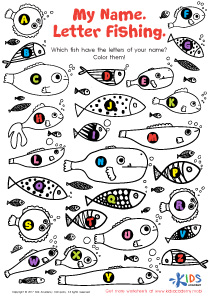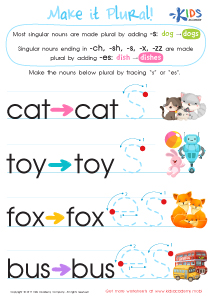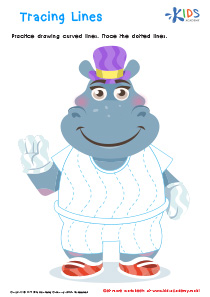Fine Motor Skills Easy Letter Recognition Worksheets for 3-Year-Olds
6 filtered results
-
From - To
Enhance your child's learning with our Fine Motor Skills Easy Letter Recognition Worksheets, designed specifically for 3-year-olds. These engaging activities seamlessly blend fun and education to help little learners identify letters while improving their fine motor skills. Each worksheet utilizes playful illustrations and tracing exercises tailored to captivate young minds and aid in letter recognition. Beyond literacy, children will build hand-eye coordination and pencil control essential for future writing tasks. Ideal for parents and teachers seeking a balanced approach to early education, these worksheets offer a solid foundation for your child's academic journey. Discover enjoyable learning today!
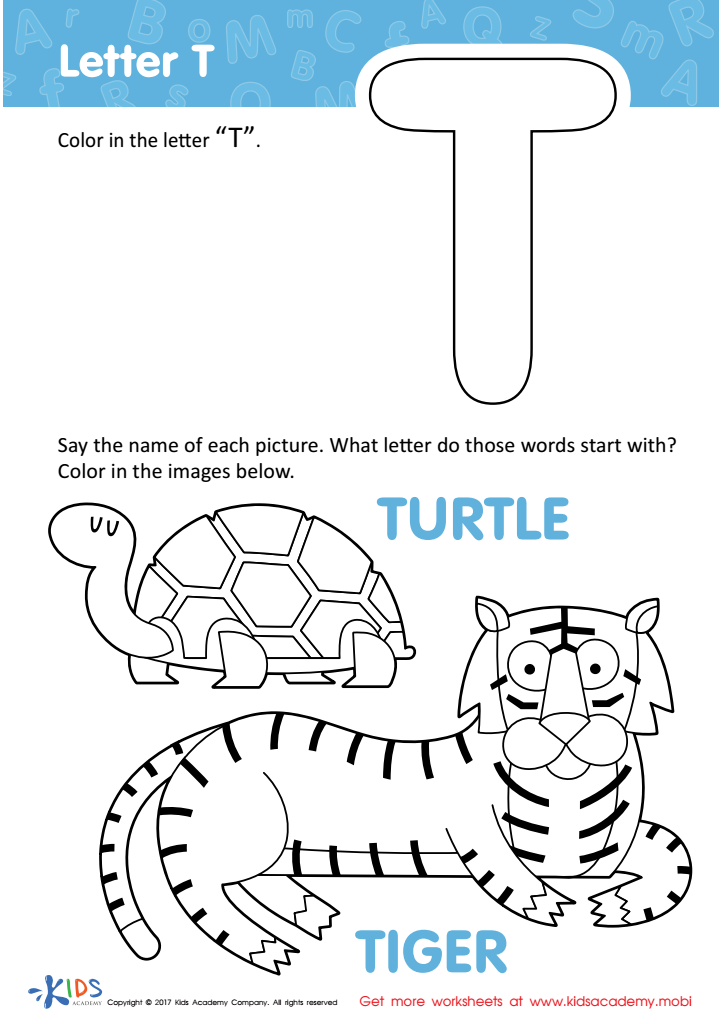

Letter T Coloring Sheet
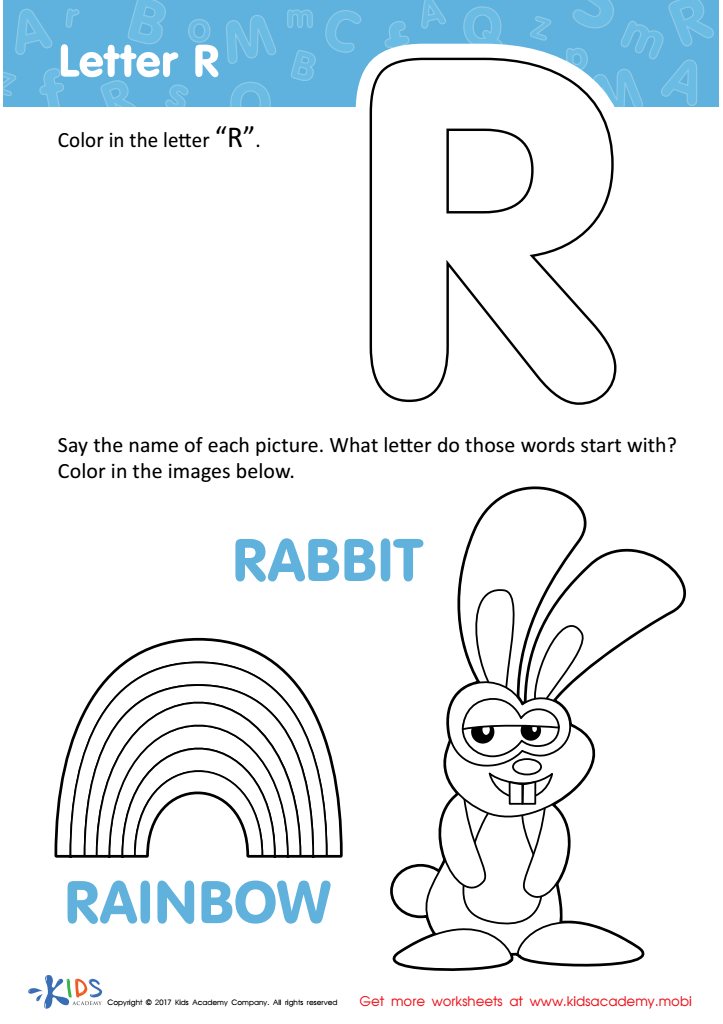

Letter R Coloring Sheet
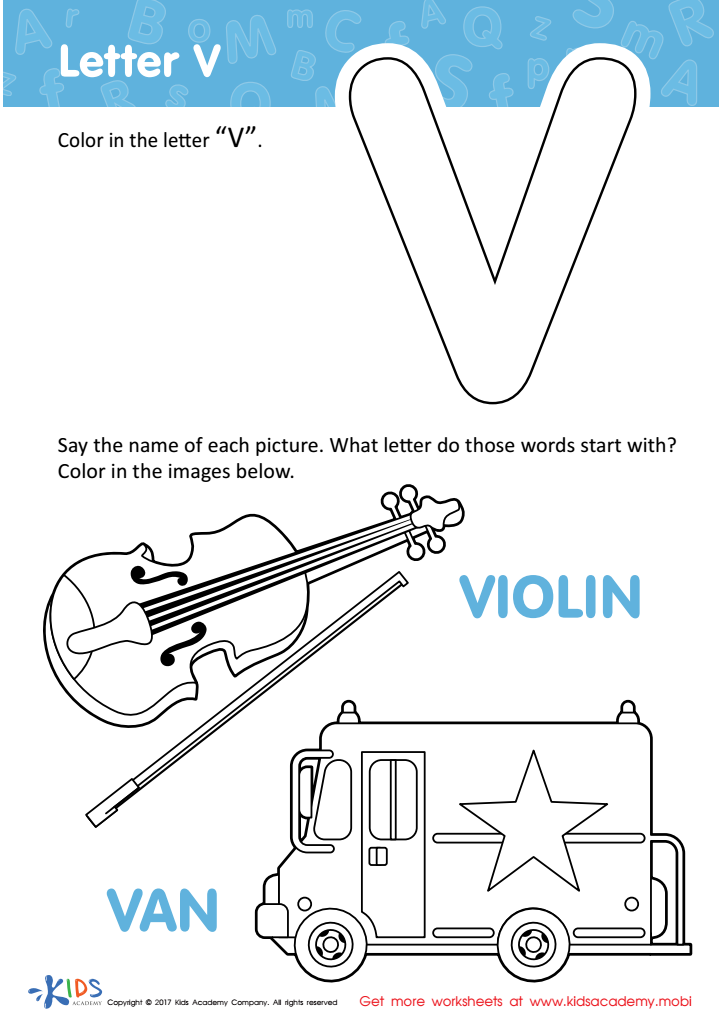

Letter V Coloring Sheet
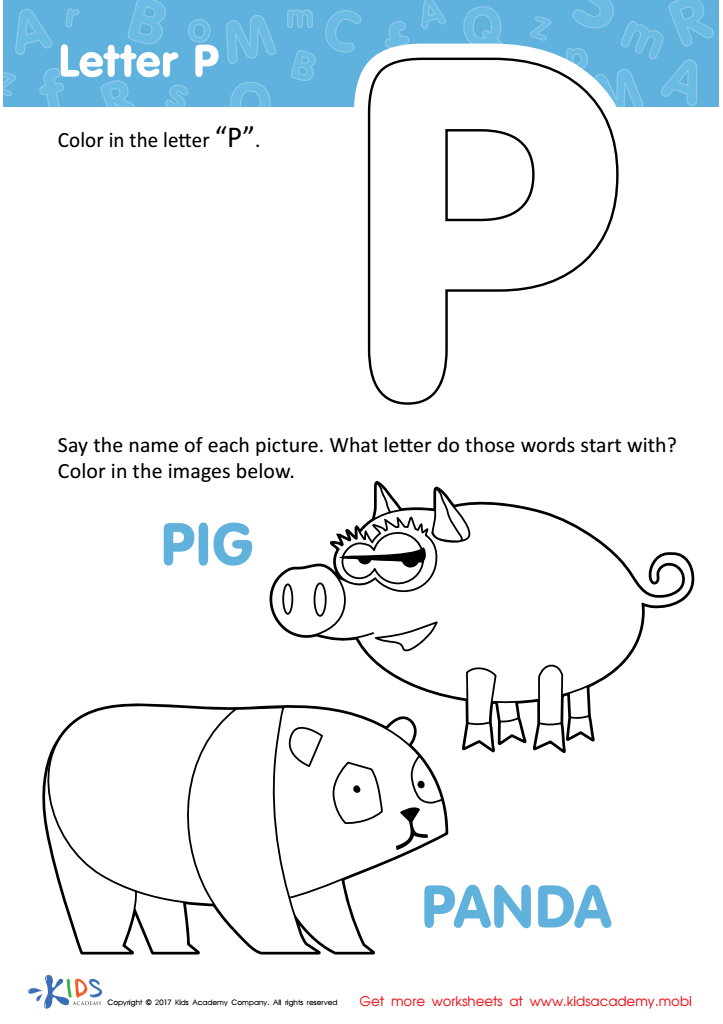

Letter P Coloring Sheet
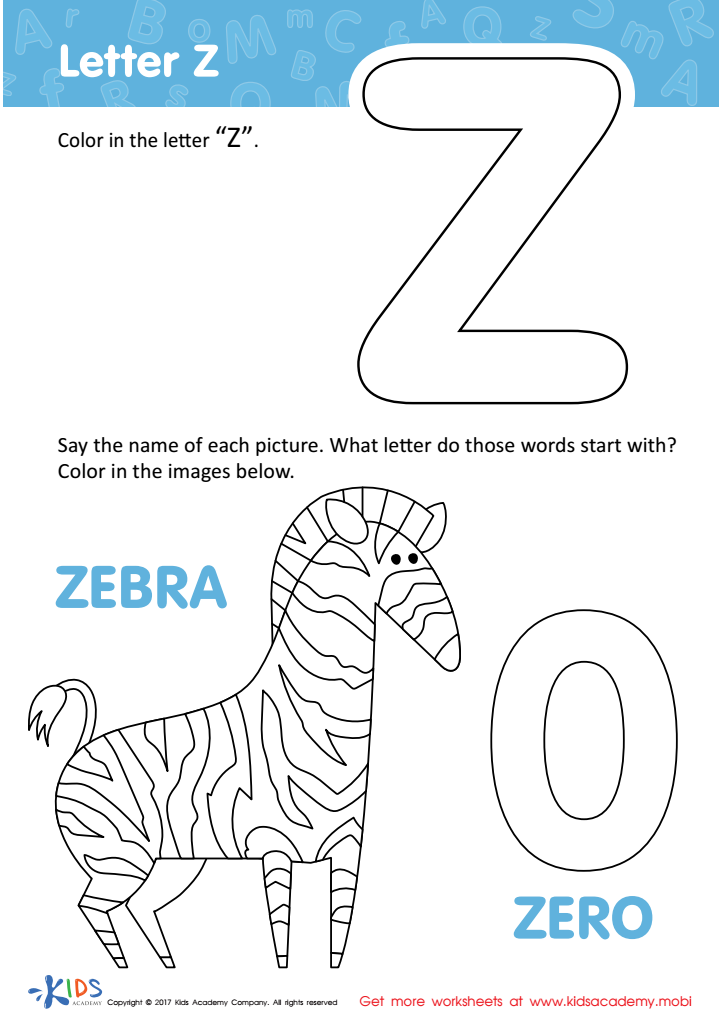

Letter Z Coloring Sheet
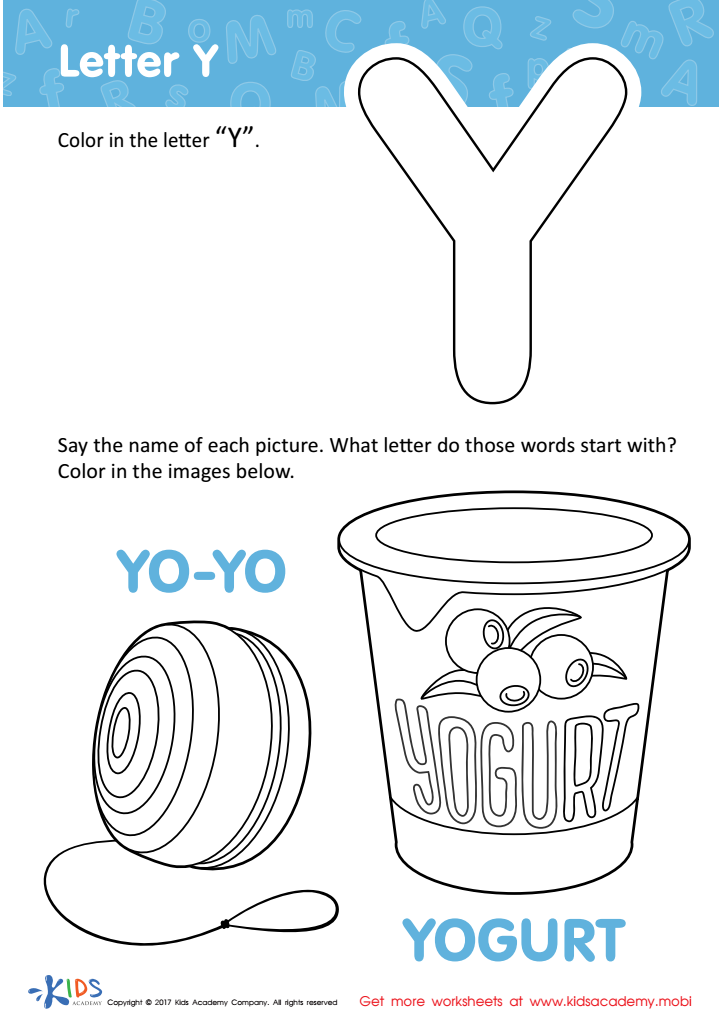

Letter Y Coloring Sheet
Parents and teachers should care about fine motor skills and easy letter recognition for 3-year-olds because these skills are foundational for a child's overall development. Fine motor skills involve the coordination of small muscles in actions like gripping a pencil, buttoning a shirt, or using scissors. For young children, strengthening these skills can enhance not only their ability to write but also perform everyday tasks independently, boosting their self-esteem and confidence.
Early letter recognition is a crucial literacy milestone that sets the groundwork for reading and writing. When children recognize letters and understand their shapes, they begin to form connections between letters and sounds, an essential skill for phonemic awareness. Introducing these concepts at an early age can lead to better language and communication skills, which in turn contribute to academic success.
Moreover, activities that promote fine motor skills and letter recognition, like tracing letters or playing with clay, are fun and engaging, fostering a love for learning. By prioritizing these developmental aspects, parents and teachers not only support cognitive and physical growth but also promote a more well-rounded early educational experience. Early attention to these skills can lead to smoother transitions into preschool and kindergarten, setting a positive trajectory for lifelong learning.
 Assign to My Students
Assign to My Students








